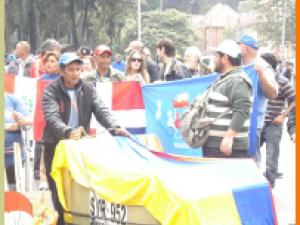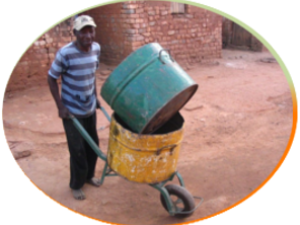GOOD PRACTICE A multi-level advocacy strategy for informal waste pickers (Colombia, Ethiopia, Madagascar, Vietnam)
Discussion details

Waste management has been a particularly important and successful domain of intervention for activist NGOs supporting the organisation of poor and vulnerable populations of waste pickers and recyclers across the world. One of the reasons is that there is potential to attain higher levels of income in a well functioning value chain. It is, however, common that dominant actors try to control and invest in many of the levels within a value chain and then eliminate traditional actors who have to struggle to keep their survival jobs.
A strong multi-level advocacy strategy was identified as the best means to grant recognition to precarious informal waste pickers and recyclers in the countries where this project was implemented. One of the most striking results of the analysis is that waste pre-collectors can benefit greatly from public awareness raising and the participation of inhabitants in the projects. Waste pre-collectors provide a proximity service but usually suffer from a bad reputation as they often belong to the lowest categories of the society and are identified with dirt. Spreading knowledge about their conditions of lives and organizing events that create links with the inhabitants can have a direct effect to improve their work conditions. Harassment may be decreased while the quality waste sorting is improved thus also limiting the presence of hazardous waste.

In each project country, the main revenue upgrades—particularly payments for the pre-collection services—and contract stability came as a result of better relationships with the inhabitants. Advocacy with public authorities is also necessary to reach the first step towards the official recognition of waste workers, helping them pass from a harmful to a useful image of themselves.
Source: ENDA “Towards social protection and inclusion of informal waste pickers and recyclers (IWPRs) in the South” Colombia, Ethiopia, Madagascar, Vietnam (Project Final Report)
Click here for more information on the good practice.
__________________________________________________________________________________________
Identification of Innovative Approaches to Livelihood Enhancement, Equity and Inclusion of People Dependent on the Informal Economy
Volume 1: Good Practices and Lessons Learned
Extracted from 33 Projects Selected Under the 2009 EC call for Proposals:
“Investing in People. Promoting social cohesion, employment and decent work. Support for social inclusion and social protection of workers in the informal economy and of vulnerable groups at community level”
March 2016
By Jacques Charmes, Mei Zegers
Log in with your EU Login account to post or comment on the platform.